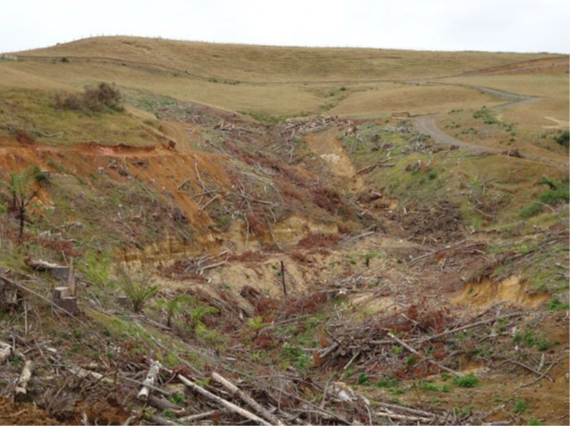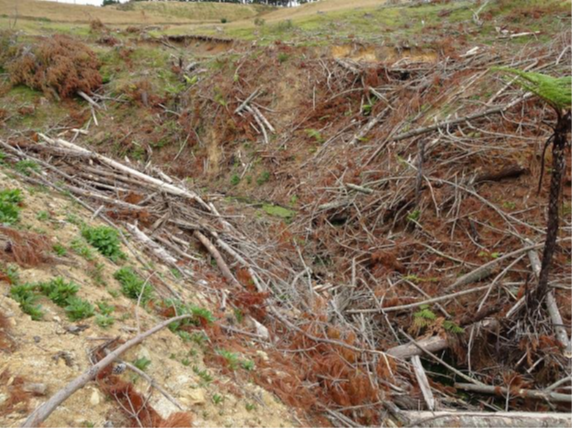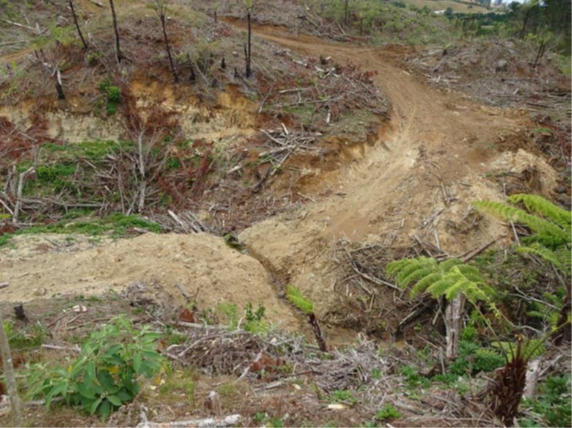“Highly careless” forestry harvest results in convictions and fines
| Published: | 11/10/2022 |
Convictions and fines totalling more than $100,000 have been imposed for environmental damage caused by a “highly careless” pine woodlot harvest and associated earthworks on a farm in northern Waikato.
Forestry company, Glenn Martin Ltd, and forestry harvest contractor, Radiata Harvesting (2017) Ltd and staff were convicted and sentenced in the Auckland District Court last Thursday (6 October 2022) on a total of 11 charges against the Resource Management Act.
They have been fined a combined total of $104,750.
The prosecution taken by the Waikato Regional Council related to activities from April 2019 through to January 2020 that resulted in over four kilometres of poorly constructed forestry tracking, along with numerous stream crossings. These actions negatively impacted streams in the area through the discharge of tree waste material and sediment.
Glenn Martin Ltd was convicted of four charges and sentenced to fines totalling $45,000. Radiata Harvesting (2017) Ltd was convicted of four charges and sentenced to fines totalling $45,000. Auckland resident and harvest foreman, Frederick Hunia, was convicted of two charges and sentenced to fines totalling $5000. Pōkeno earthworks contractor Peter Arnet was also convicted of one charge and fined $9750.
In sentencing in Auckland, District Court Judge Melinda Dickey characterised the forestry harvest as “highly careless, bordering on reckless” in respect to Glenn Martin Ltd and Radiata Harvesting (2017) Ltd.
Waikato Regional Council’s Regional Compliance Manager Patrick Lynch said: “The environmental effects of forestry activities are regulated through a national environmental standard. This standard has now been in place for some years, and the forestry industry will notice an increased focus by us on compliance with it.
“Where landowners or forestry contractors deviate from these national regulations, resulting in adverse environmental outcomes, they can expect enforcement action to be taken.”
He added: “The forestry harvest management was very poor in this instance. Sediment is one of the main pollutants that adversely affects water quality, in this case the headwaters of the Ohaeroa Stream and ultimately the Waikato River.”

Typical valley with stream covered by forestry slash waste and tracking side cast soil.

Typical example of forestry slash waste in stream.

Typical stream crossing with no sediment controls or temporary culvert.




To ask for help or report a problem, contact us
Tell us how we can improve the information on this page. (optional)